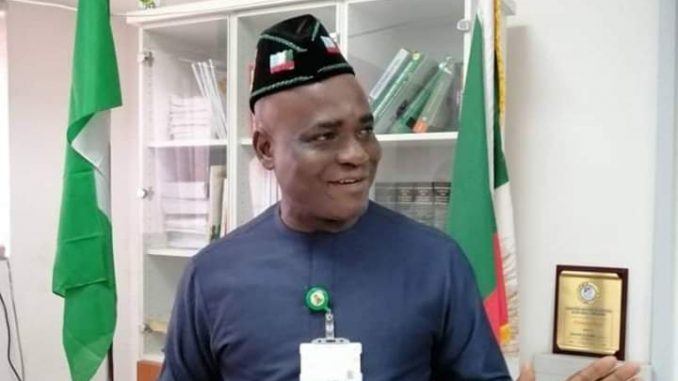
Senior Special Assistant to the President on Niger Delta Affairs, Senator Ita Enang, has said that the Federal Government was planning to legalise Modular Refineries in the country.
Enang made this known when he featured on a News Agency of Nigeria (NAN) Forum on Thursday in Abuja.
He said that his office had, over a period of time, engaged some illegal oil refiners in the Niger Delta region and had seen the need to legalise their operations.
According to him, “some of the artisanal refiners can produce chains of petroleum products and supply them for consumption in the country”.
The President’s aide noted that engaging the artisanal refiners would go a long way to saving cost for the country and boost revenue generation.
“They might not produce much to feed Nigeria and neighbouring countries, but there are refineries in neighbouring countries we take our crude oil to, to refine
“We pay to export and import, and there are still subsidy elements in it. By the time you engage these persons, they will just be producing for you.
“You do not pay for import or export, you do not pay any of the port authorities’ charges unless you transport the products by sea.
“By so doing, you will be improving their capacity and you will bring down the cost of refined petroleum products drastically. So, there will be no element of subsidy,’’ he added.
He noted that with developments in the global oil market, there would be uncertainty after the COVID-19 situation in terms of the demand for oil which would help to shore up oil prices.
Enang said that Nigeria, according to the NNPC, has vessels with products yet to be sold which were incurring costs.
“We are not sure that by the time the world recovers from COVID-19, that all the countries of the world will immediately need enough oil to bring up the price, even if it is artificially raised for the purpose of sustaining the economies of the big countries.
“If there is no demand, like the Group Managing Director of NNPC, said, we have vessels on the high seas, we have not found a market for them. These vessels in the high seas, you are paying demurrage, you are paying for each day that the vessels are in the waters.
“Whether you sell your crude oil or not, it is a charter agreement, unless you offload or evacuate your goods from the vessel, you are still paying for hiring the vessel.
“The cost of hiring the vessel will sometimes even be more than the cost of the product on the vessel, so you return a zero or even a negative profit. That is whether you sell or not, the days you hire can even be higher than the cost of the commodity.
“Therefore, Nigeria and Nigerians have to consider this and come to an agreement to boost local refining,’’ he said.
He assured Nigerians that there would be continuous engagement with stakeholders and even the legislature to seek understanding of all.
Commenting on the state of the refineries, he said that it was unfortunate that Nigeria had lost quite a lot of money on the maintenance of the facilities.
“Nigeria’s refineries have been posting losses of more than N300 billion for some years, according to the reports of the NNPC and NEITI. It is our belief that if there is no more subsidy payment, these refineries will, on their own, start working.
“This is because they will know that they have no other choice and no other job, and no subsidy will come for the payment of their salaries and earnings when the refineries have not worked and when they have not refined petroleum products.
“Worst of all, the world is moving away from petroleum products, the green energy and other things are challenging the Nigerian economy. The cost of production of oil keeps rising.
“The amount at which we now sell crude oil may go lower than the cost of production; that means Nigeria will not earn anything in the course of it, forcing us to go for other alternatives to sustain the economy,” he said

Leave a Reply